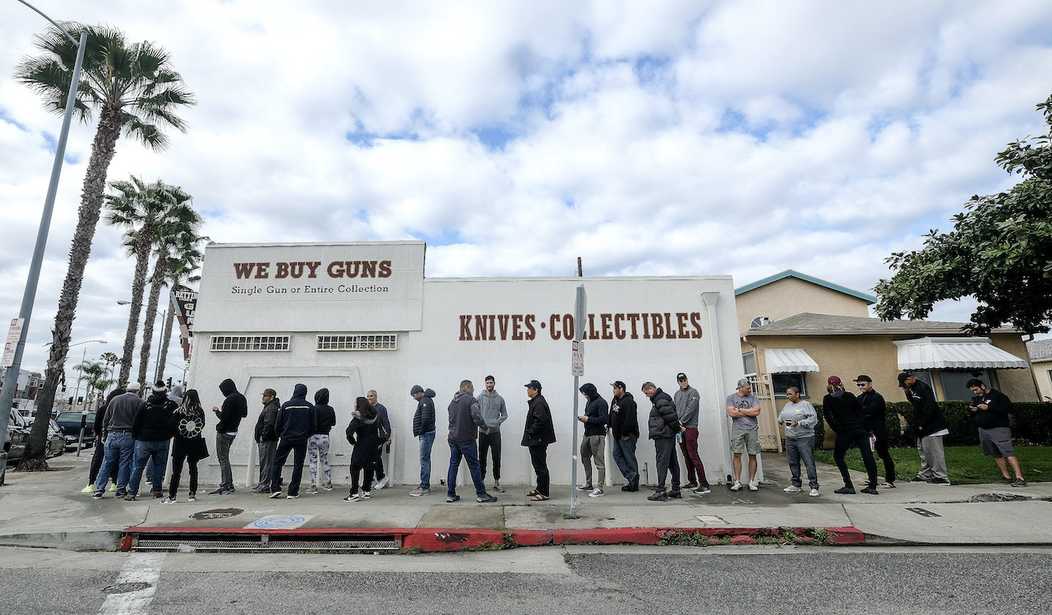Last September, California Gov. Gavin Newsom signed a bill into law authorizing the release of gun owners’ personal information to researchers and others who’ve been given access to a state-run database that’s chock full of identifying details of those who legally own firearms. Now, several anonymous gun owners in the state have filed suit in federal court hoping to block Attorney General Rob Bonta from from enforcing AB 173 and its provision requiring the state’s Department of Justice to disclose the information to the California Firearm Violence Research Center at UC Davis and all other “research institutions” that request it.
The five gun owners, listed as Jane Doe #1 and John Does 1-4, argue in their complaint that the new law runs afoul of the U.S. and California Constitutions, as well as state law protecting the right to privacy, by granting researchers access to the state’s Automated Firearms System, which includes a lot of personal information; “name, address, place of birth, telephone number, occupation, California driver’s license or ID number, race, sex, height, weight, hair color, eye color, and, in some instances, social security number” according to the plaintiffs’ attorneys.
The public release of Plaintiffs’ Personal Information threatens Plaintiffs’ personal privacy and physical security. When the identities of firearms owners are known, those owners often encounter concerted harassment, sometimes including violence. Indeed, firearm owners are frequent targets of criminal efforts to steal firearms from homes and businesses. In 2017, it was estimated that an average of 8,000 firearms are stolen from California homes each year. That trend is consistent with data collected by the Federal Bureau of Investigation showing that, between 2012 and 2015, an estimated 1.2 million guns were stolen from individuals nationwide.
Turning over Plaintiffs’ Personal Information to the University of California Davis or other accredited research institutions, within or without California, would greatly increase the risk of unauthorized and unwarranted dissemination of Plaintiffs’ protected Personal Information to the public, putting Plaintiffs and their families at great personal risk.
Universities, including the University of California and other accredited research institutions, are frequent targets of hacking attacks that have resulted in the Personal Information of tens of thousands of students and faculty being stolen and/or publicly exposed.
Under the AB 173 Amendments, there are no express statutory proscriptions concerning the scope of disclosure. It is therefore possible that partisan and/or ideological activists or organizations, with established political and ideological bias against the rights guaranteed under the Second Amendment, may obtain access to Plaintiffs’ Personal Information by associating themselves and their researchers with the California Firearm Violence Research Center or any other accredited nonprofit bona fide research institution. Such activists or organizations could obtain such association by, for example, endowing a chair at the California Firearm Violence Research Center or any other accredited nonprofit bona fide research institution, and thereby obtain access to Plaintiffs’ Personal Information.
Faced with such risks, Plaintiffs are understandably afraid that having their identities disclosed will put them and their families at risk.
There is no interest served by the disclosure of Plaintiffs’ Personal Information, particularly in view of the heightened risks of harassment and loss of personal privacy that Plaintiffs will face if their Personal Information is disclosed.
If researchers want access to aggregate, non-identifying information about gun owners, I don’t think this would be an issue. But as the California Rifle & Pistol Association’s legislative director Roy Griffith, Jr. pointed out in a letter to Newsom urging him not to sign AB 173 into law, the state has supposedly enshrined strong privacy rights into its state constitution and laws.
Research conducted by the California Firearm Violence Research Center and other institutions to prevent violence should not be about individuals and their personal information, rather about a broad-based study about the prevention of violence, where an individual’s specific personal information is irrelevant.
Most importantly AB 173 is in direct violation of the California Constitution which states in Article 1, Section 1, “All people are by nature free and independent and have inalienable rights. Among these are enjoying and defending life and liberty, acquiring, possessing, and protecting property, and pursuing and obtaining safety, happiness, and privacy.” In all, the California Constitution names “privacy” as a fundamental right of all Californians five times!
While the state’s Constitution may mention privacy nearly a half-dozen times, the document is absent any mention of the right to keep and bear arms. That still doesn’t give the state’s Attorney General a green light to open up the state database, especially since the Supreme Court ruled back in 2010 that states and local governments can’t infringe on our right to keep and bear arms any more than the federal government can.
The lawsuit doesn’t just rely on privacy claims, however. It lays out several additional arguments, including the notion that AB 173 was an illegal modification of a referendum approved by California voters in 2016, as well as the claim that AB 173 violated the state’s “single subject” rule for legislation, since the measure was included in a budget bill. According to the plaintiffs, under existing precedent, budgetary bills that “substantively change existing law violate the single subject rule,” which should render the legislation moot.
Newsom never should have signed AB 173 into law to begin with, but I suspect his hostility towards gun owners and the Second Amendment far outweighed any respect he might have for the privacy rights of Californians. Here’s hoping the federal judiciary smacks down this unconstitutional power grab and protects the identities of all those forced to live under California’s dystopian and dysfunctional gun control regime.









Join the conversation as a VIP Member